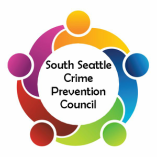Charity Scams
Charity scams/frauds are common crimes committed all around the world, crimes which take advantage of one's better impulses, one's generosity. The fraudulent pitch usually happens like this: You are contacted in one of the following ways: via telephone, by email, or with a knock on your door or someone approaching you in a parking lot or shopping area. You are told that the solicitor seeks monetary donations for a cause such as disaster relief, animal care/rescue, hunger prevention, and the like. If the appeal is made in person or via email, photos of people or animals in distress may be shown you. Your desire to help results in a donation; the problem is that often very little or none of the donation actually goes to the charitable cause. Instead, most or all monies are pocketed by the charity fraudsters/scammers. Thus, the crime is two-fold: donors are defrauded and much-needed monies are criminally diverted from legitimate charitable causes. Act on your kindness yet trust your instincts--it is better to contact a charitable organization yourself.
Avoiding Charity Scams
Avoiding Charity Scams
- If someone solicits you in-person, ask for proof of the solicitor's connection to the charity
- Ask for printed literature about charities unknown to you, especially if you're contacted via telephone
- Call the charity--ask if it authorizes solicitors to use its name to seek donations; if it answers "no," a scam is occurring
- Do not respond to email solicitations--delete these/"spam"-delete these
- Make sure the charity is legitimate--research online and with your local Better Business Bureau
- Determine how much money goes directly to the charitable cause--legitimate charities readily have this answer
- Make monetary donations by check, payable directly to the charity instead of the charity's solicitor
- Use caution when making donations with a credit card--best to use this method only with well-established charities
- If you believe you've given a scammer financial/credit information, contact your bank/credit card company immediately
- Always get a receipt--make sure this includes the charity's name, the donation amount/value, and the date
